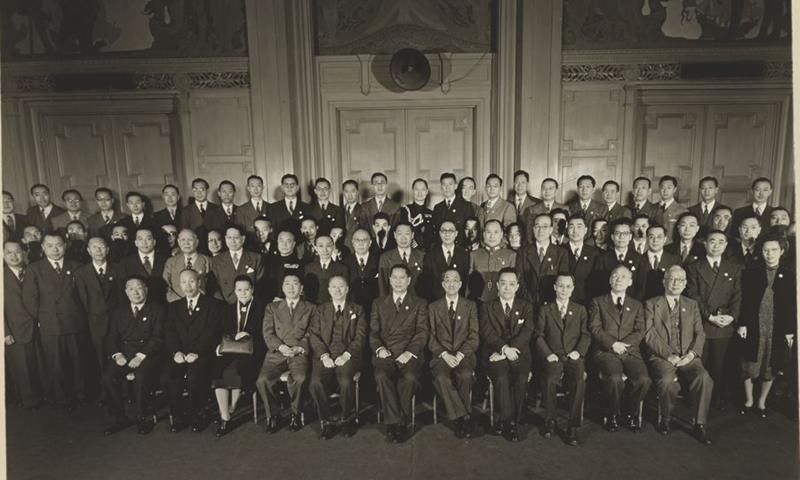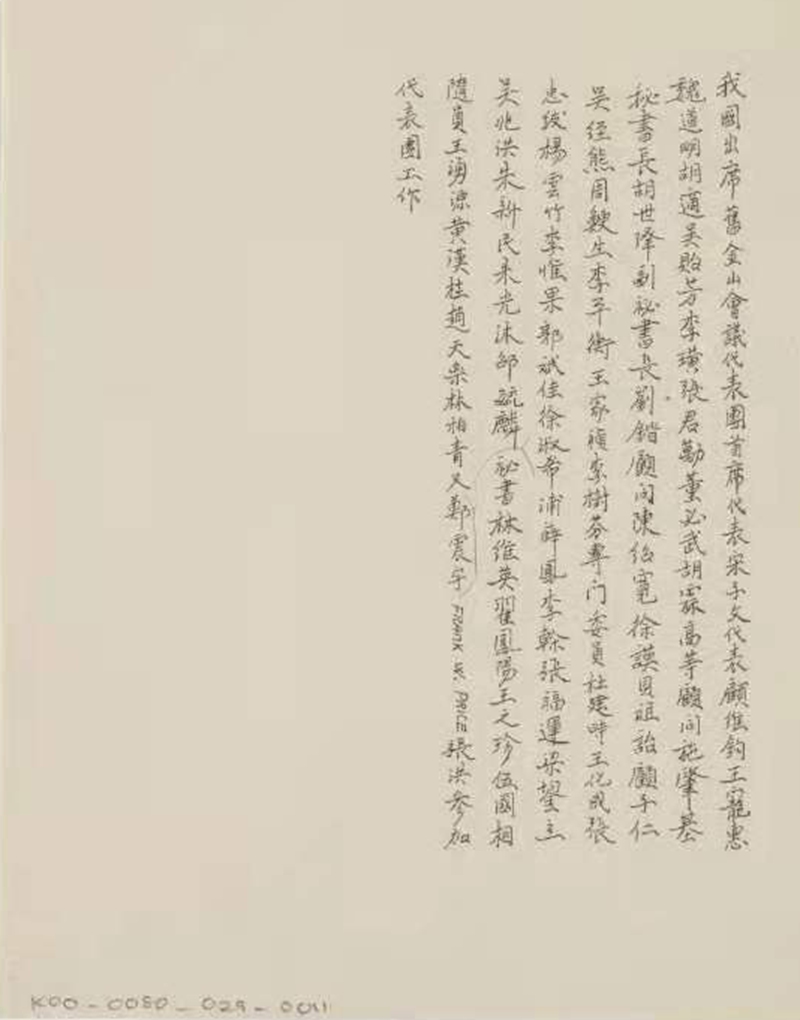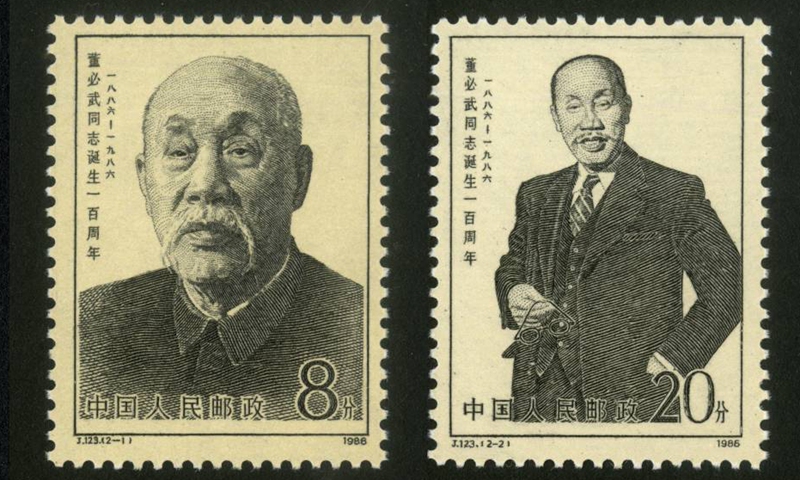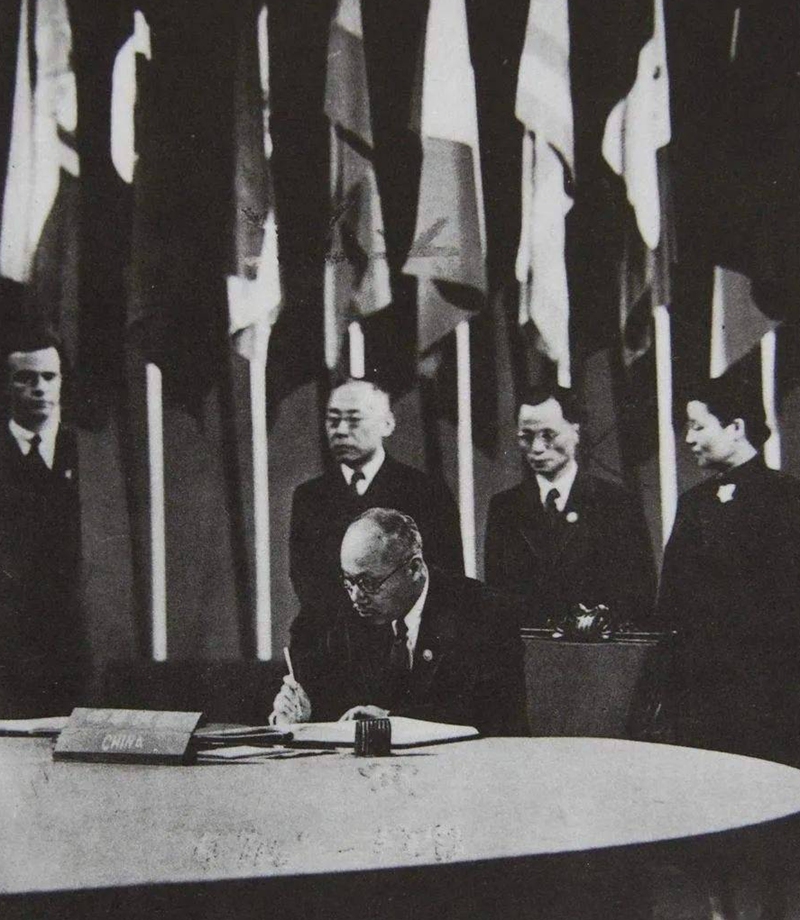At the United Nations Conference on International Organization in San Francisco (San Francisco Conference) on the morning of 26 June 1945, a refined and composed senior signed his name Dong Biwu on the Charter of the United Nations with a writing brush. The signature, consisting of three Chinese characters 董必武 written with such strength and solemnity, marked the CPC's debut on the international stage, an extraordinary and hard-won moment engraved in history .
In early 1945, good news about the World Anti-Fascist War kept pouring in. The Yalta Conference decided to hold the United Nations Conference on International Organization in San Francisco on 25 April 1945. The United States issued formal invitations to countries concerned on behalf of China, the United States, the United Kingdom and the Soviet Union. At that time, the CPC-led anti-Japanese forces were growing rapidly. In its memo to the US State Department, the US embassy in China opined the CPC had become the most active force and the War of Resistance Against Japanese Aggression had been successful. However, the Kuomintang (KMT) authority planned to send only KMT members to the conference, which was no doubt unacceptable to the CPC, other political parties and the Chinese people. With unremitting efforts by the CPC, strong condemnation from the entire nation and great pressure from the Allies, the KMT authority had no choice but to accept Dong Biwu, a CPC member who attended the First National Congress of the CPC and participated in the Long March, as the representative of the CPC Central Committee to attend the San Francisco Conference.
In his address in Chongqing, Dong Biwu stressed that he, sent by the CPC Central Committee to the Conference, for the sake of the greater good and peace, would strive for democracy, unity and international peace. What he said reflects the CPC's understanding of the historical inevitability and the importance of the founding of the UN. It also points to the CPC's nature as a party that, instead of serving its own selfish interests, works for the well-being of the Chinese people and the people around the world.
The world back then was still at war, and it was extremely difficult to travel from one country to another. As the San Francisco Conference drew near, the KMT representatives flew straight to the US on the luxurious private jet of Soong Tse-ven, the head of the KMT delegation. Dong Biwu and his delegation, on the other hand, set out on a tortuous journey with a small military plane on 12 April 1945 that took them across four continents before finally landing in the US 10 days later. Exhausted as he was, the 60-year-old Dong Biwu was keenly aware of the responsibilities on his shoulders and expressed, with the confidence and optimism of a proletarian revolutionist, his determination in a poem:
A good journey in my life, I enjoy flying these thousands of miles.
Braving the wind and the waves, we leave behind the clouds that will no longer block our way.
War and strife in Europe no more, a defeated Japan will be held to account.
A bright future lies ahead, but not without twists and turns.
At the Conference, Dong Biwu worked tirelessly with the delegates of various countries to formulate a charter that would serve the fundamental interests of all the people in the world. During discussions of the trusteeship system in particular, Dong Biwu and other Chinese representatives argued that the ultimate purpose of the trusteeship was to achieve the freedom and independence of the trust territories. By doing so, they safeguarded the interests of people in colonized and semi-colonial territories and established a brand new international image for China.
Mr. Peter Chi-Choong Kwong, a well-known Chinese American, wrote that when the UN was founded in San Francisco in 1945, Soong Tse-ven, the representative of the KMT government, came to visit New York. He stayed in a luxurious hotel and refused to deliver a speech at the Chinatown. In contrast, the representative of the CPC Dong Biwu impressed the Chinese community in New York by addressing many Chinese-hosted gatherings.
In the few months when he was in the US, Dong Biwu and his assistants compiled, printed and distributed 5,000 English copies of the
Memorandum on China's Liberated Areas: A Factual Report on Chinese Areas Liberated from Japanese Occupation, sharing with the world the CPC's political program and the great achievements made in the anti-Japanese base areas. He met with many overseas Chinese leaders and progressives and paid field visits to overseas Chinese workers. The local Chinese newspaper covered Dong's meetings with overseas Chinese groups with the title of
China's Light of Hope, and published his entire speech,
Basic Policies of the Communist Party of China.
On 26 November 1945, Dong Biwu effectively fulfilled the important task entrusted by the CPC, other political parties and the whole nation, and returned to China safe and sound. His attendance at the Conference and signature on the UN Charter demonstrate the CPC's commitment to the well-being of the Chinese people and people around the world, and its aspiration to achieve victory and liberty together with the rest of the world. At the same time, what he did goes a long way toward helping overseas Chinese and people around the world better understand the CPC and the direction of China's great national rejuvenation. He was indeed a true representative and envoy of the Chinese people.

Group photo of the delegation attending the San Francisco Conference


Two stamps were issued in 1986 to commemorate the 100th anniversary of the birth of Dong Biwu. The second stamp (right) features the photo of Dong when attending the San Francisco Conference.

Dong Biwu signing the Charter of the United Nations







